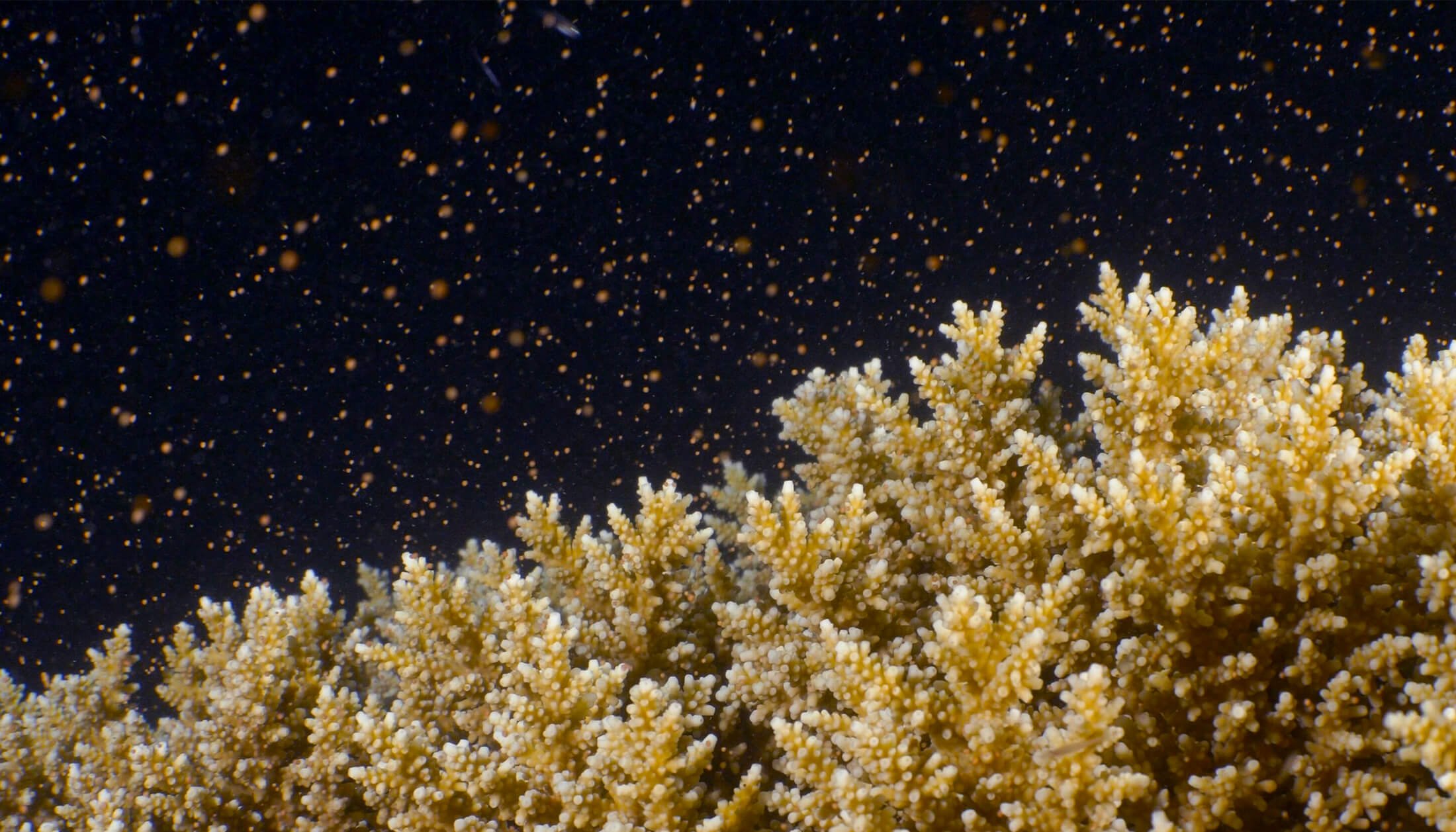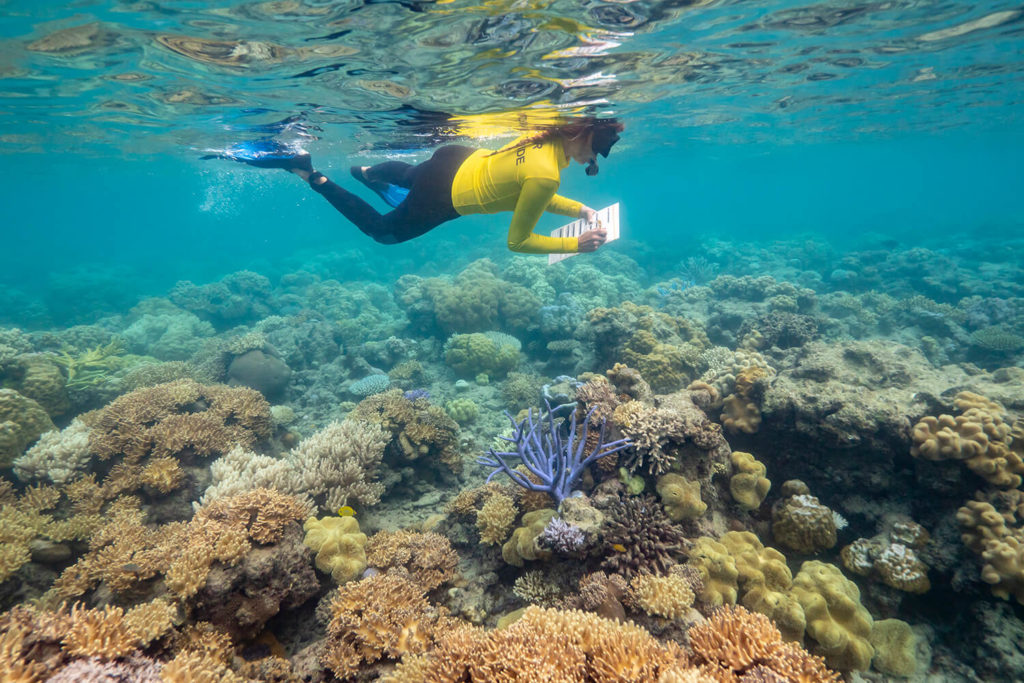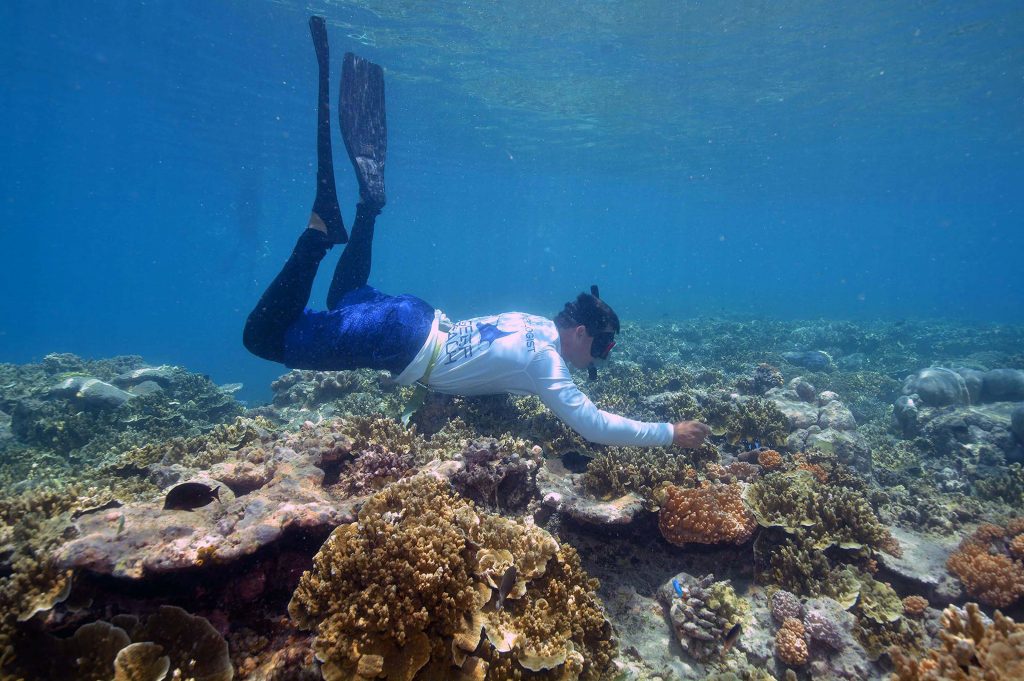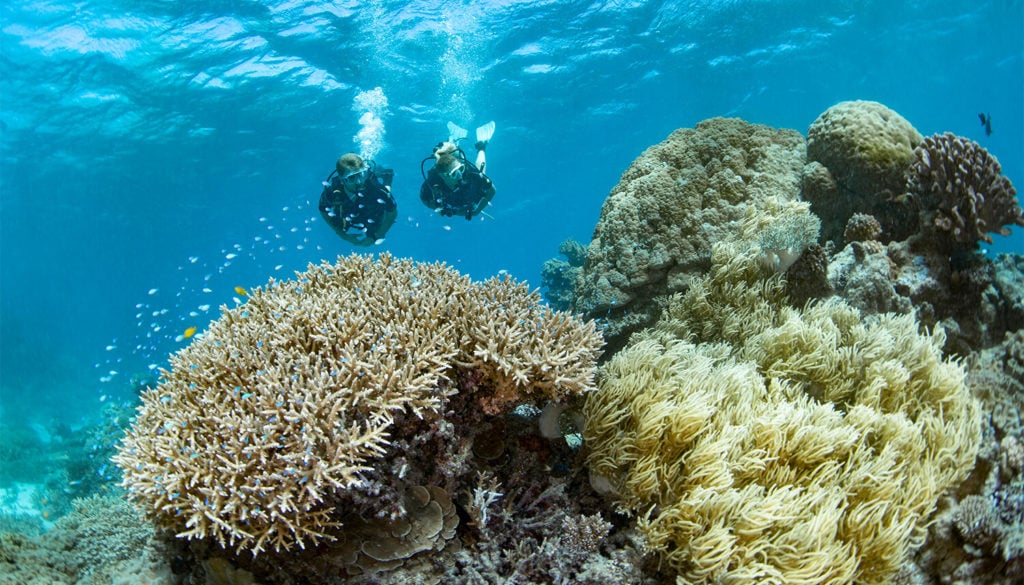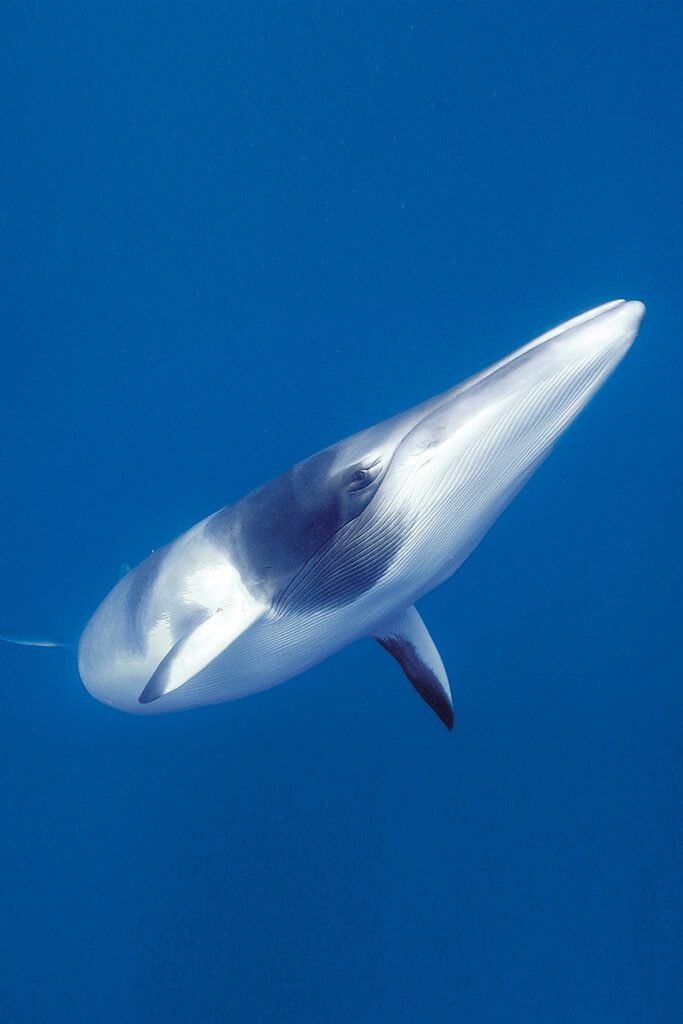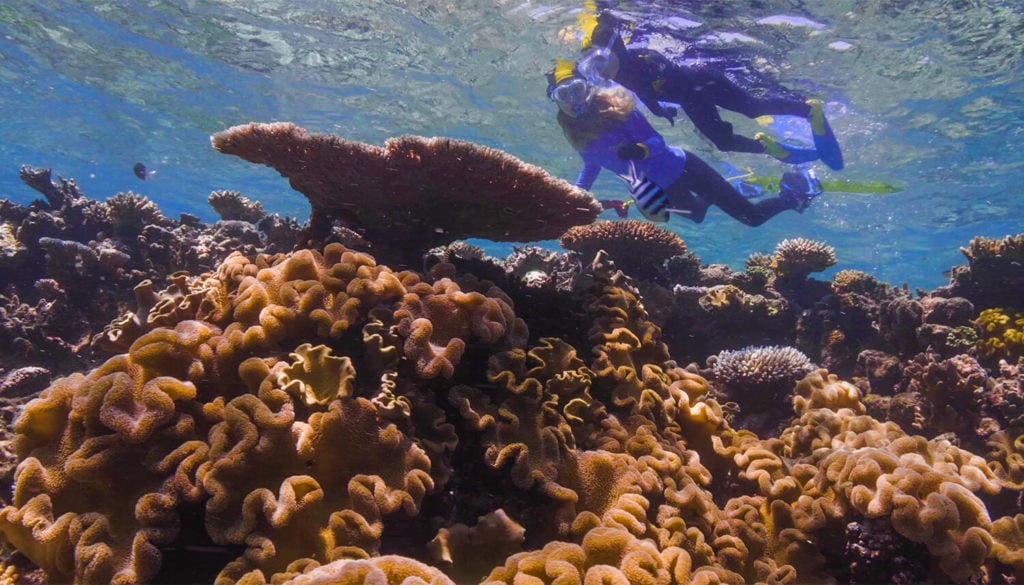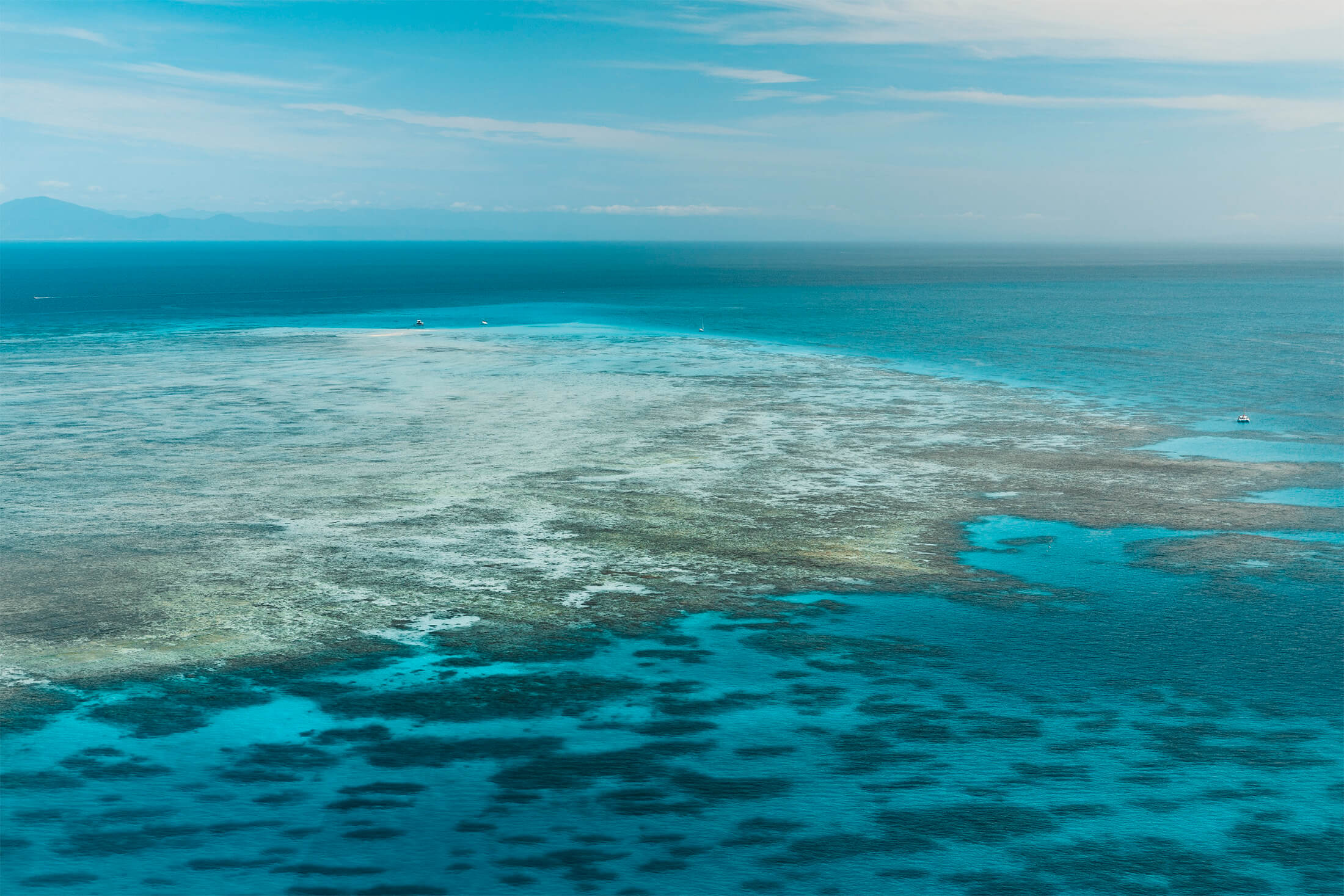TNQ Writer
Strap on your mask and snorkel or tank for the Great Barrier Reef’s biggest event of the year – the beautiful and mysterious mass coral spawning.
What is coral spawning?
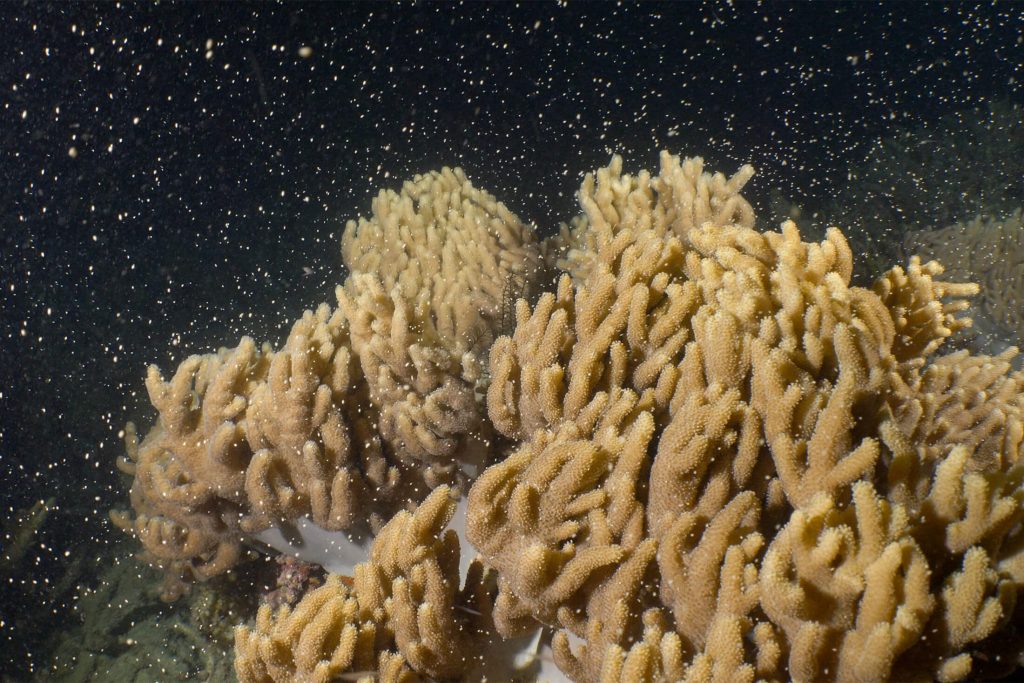
For 20-30 minutes the reef explodes with life
For 20-30 minutes the reef explodes with life
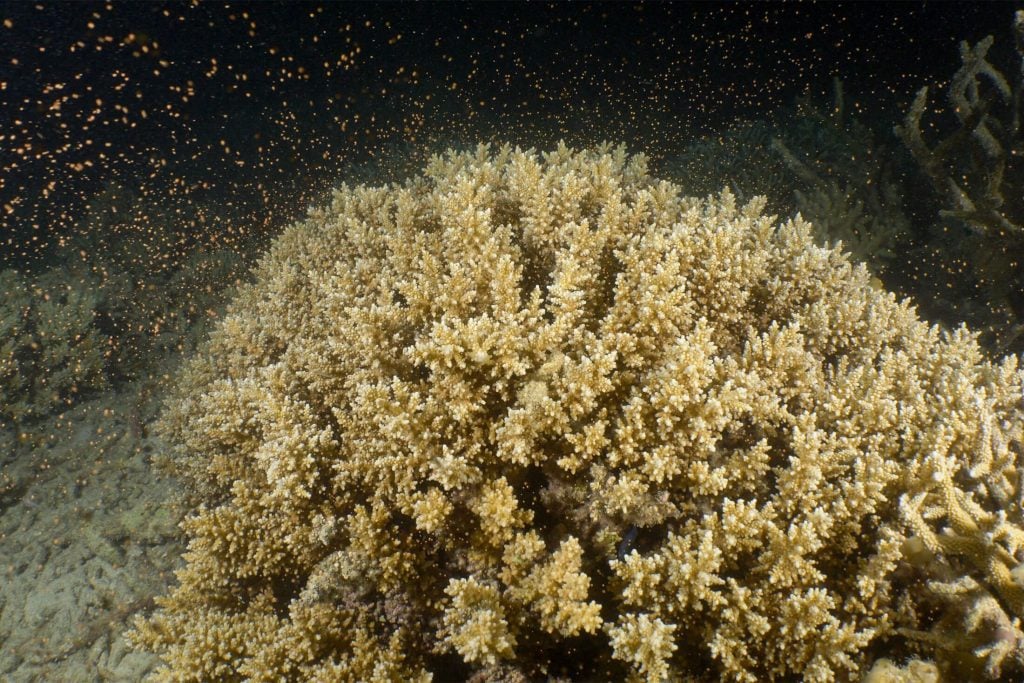
The annual event is incredible to go diving or snorkelling in
The annual event is incredible to go diving or snorkelling in
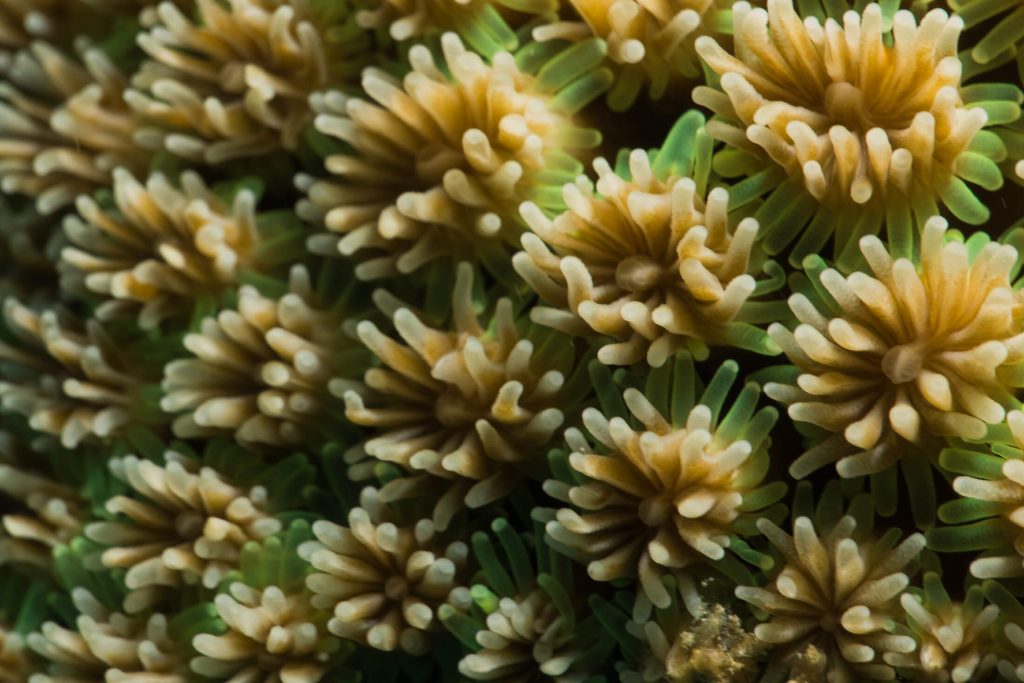
Coral polyps are like tiny upside-down jellyfish
Coral polyps are like tiny upside-down jellyfish
In simple terms, coral spawning is the reef having sex. Coral polyps simultaneously release egg and sperm bundles that they’ve spent months growing into the ocean for external fertilisation. This happens in a mass event annually often affectionately named the world’s largest orgasm on the world’s largest organism.
It’s literally just an eruption that lasts for 20 minutes to a half an hour, where the whole Great Barrier Reef just has sex, with coral polyps releasing. Clams go. Sea cucumbers go. Starfish go. Everything just goes. It’s literally a mass orgy. It’s the biggest sexual event on the planet. It’s an amazing thing to go snorkelling or diving in.
Gareth Phillips, Marine Biologist
During this time the Great Barrier Reef is transformed into an underwater spectacle resembling the inside of a snowglobe. The spawn then produces a pinky-brown ‘slick’ on the surface where eventually, some sperm will meet a compatible egg and produce a larvae that takes about ten days to fully mature. It will swim around anywhere from two weeks to nearly two months until it finds somewhere to settle metamorphosising into a coral polyp and beginning its journey building a coral colony by replicating itself..
When does it happen?
Coral spawning occurs in late spring or early summer
The estimated 2023 coral spawning dates are between Friday 3rd November- Sunday 5th November.
Experts are able to predict probable times of coral spawning but there still remains an air of mystery around when it occurs. It only happens at night and once the water temperature is above 26ºC for the whole month prior and the seas are calmer. What actually triggers the event still remains unknown and tell-tale signs won’t reveal themselves until 20-30mins before it occurs.
The time of year depends on the reef location. Reefs off Cairns and Port Douglas generally begin spawning several nights after the full moon in October or November and it’s usually just one or two nights that it explodes, however, it may occur over different nights in late spring or early summer. Coral spawning off the islands or inshore reefs can happen a month or so earlier. It only happens at night once most plankton feeders are sleeping to give the eggs a greater chance at survival.
It is anticipated that the corals on the outer reefs off Cairns will spawn on a least one night between November 3 and 5 in 2023. Scientists think there may be a split spawn this year as the water temperatures have levelled off after being warm over winter. The second spawning could happen between December 2 and 4. Some inshore reefs spawned early in October, with a slick of spawn spotted from the air near the Frankland Islands on the morning of October 4.
What happens if I miss it?
While any natural events are never a guarantee don’t let that dishearten you. The Great Barrier Reef transforms itself from day to night and is a completely different beast after the sun sets. Spend your time discovering the creatures that like to stay hidden during the day – and remember; you are diving or snorkelling the Great Barrier Reef at night, that in itself is a pretty special experience and an opportunity not many people have the chance to experience.
Liveaboards operate over the predicted dates however these are not dedicated coral spawning trips. Plans can vary depending on weather and time, so if you are interested in a liveaboard experience enquire directly with the company for their plans around the annual event.
Ways to experience
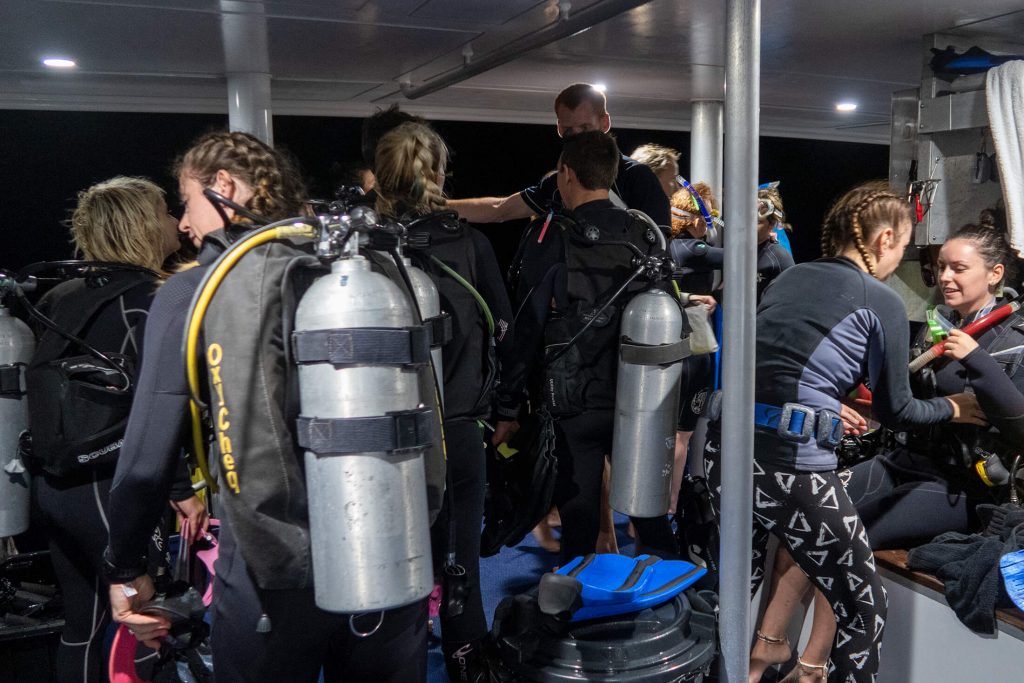
Divers or snorkelers alike can both experience the spawning
Divers or snorkelers alike can both experience the spawning
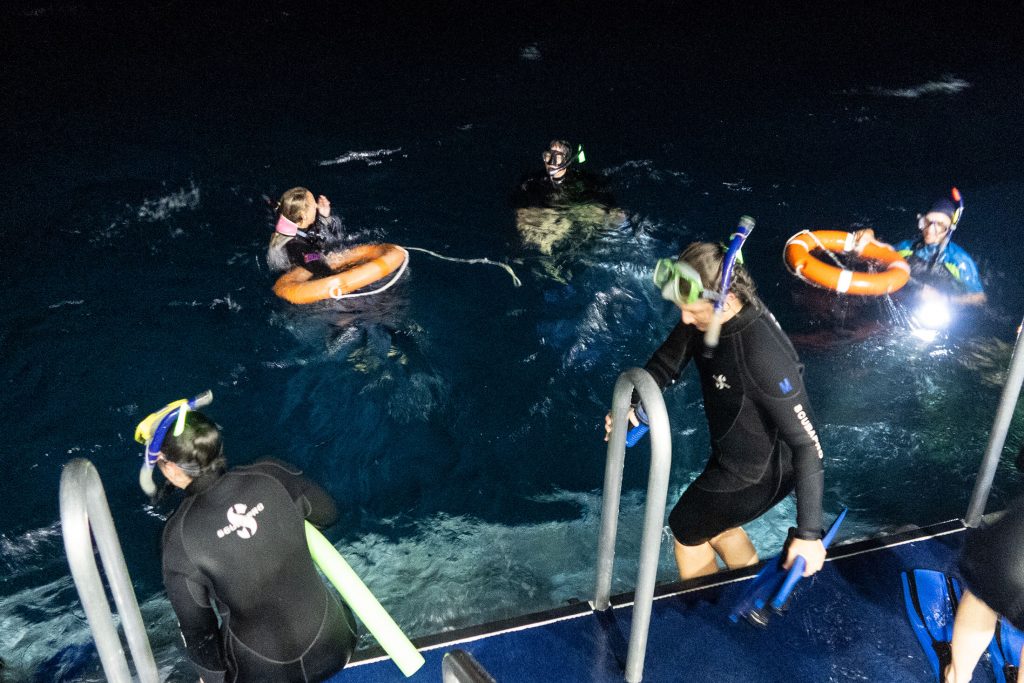
Snorkelers jumping into the Great Barrier Reef for the spawning
Snorkelers jumping into the Great Barrier Reef for the spawning
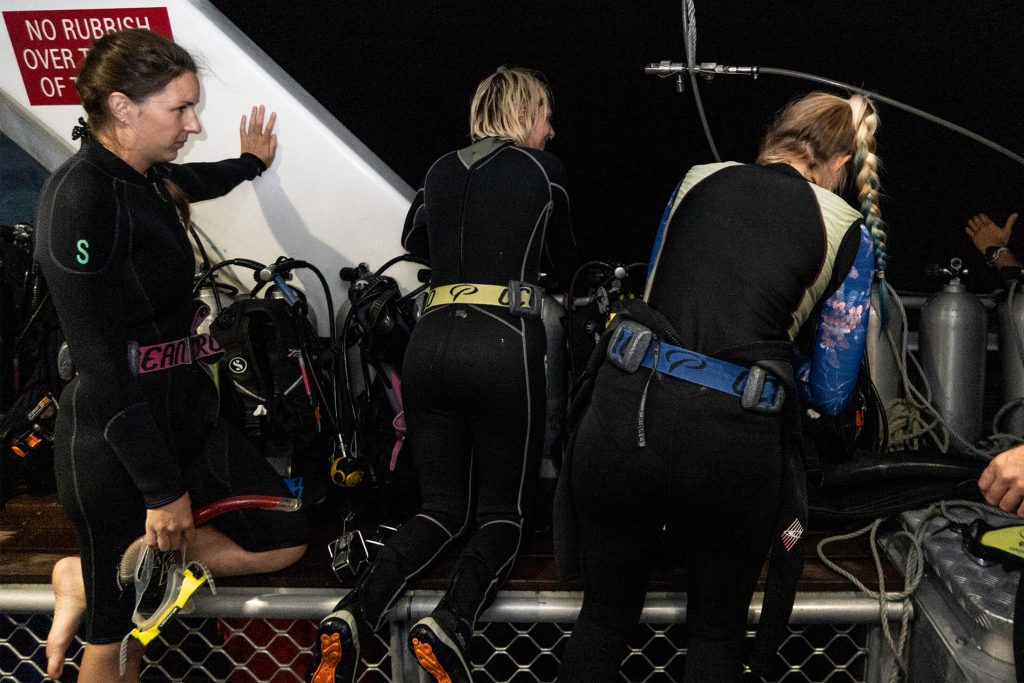
Divers awaiting their time to dive the reef at night
Divers awaiting their time to dive the reef at night
Divers Den,Pro Dive Cairns and Tusa are offering dedicated coral spawning trips this year
Depart Cairns
Divers Den – 3rd November, 2nd & 3rd December
Pro Dive Cairns – 30 October- 3rd November & 29th November- 2 December
Tusa- 2nd November & 2nd & 3rd December
Liveaboards operate over the predicted dates however these are not dedicated coral spawning trips. Plans can vary depending on weather and time, so if you are interested in a live aboard experience enquire directly with the company for their plans around the annual event.
Share your experience
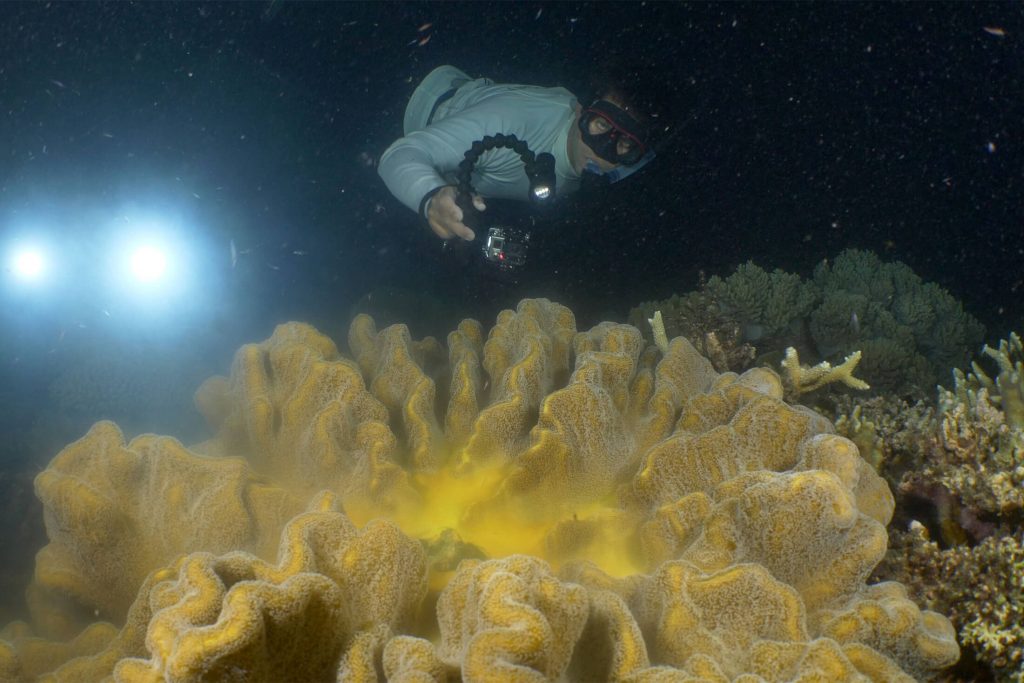
Share you photos or videos
It’s important to share the good news stories that surround the reef to drive people to make positive changes to help the precious marine park. If you’re one of those fortunate enough to witness this year’s spawning, make sure to share your experience by:
- Reporting any coral spawning sightings via the Eye on the Reef app – this will also appear of the Citizens of the Great Barrier Reef Citizens Atlas
- Upload your photos to social media using the hashtags #spawningGBR #exploreTNQ #citizensGBR #uniteforthereef

